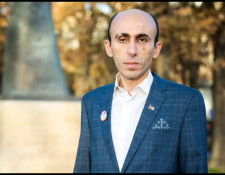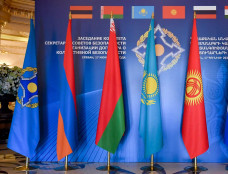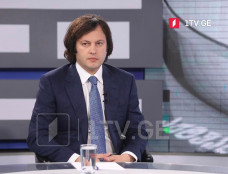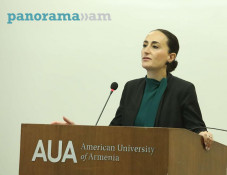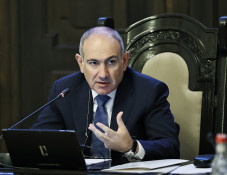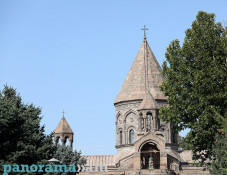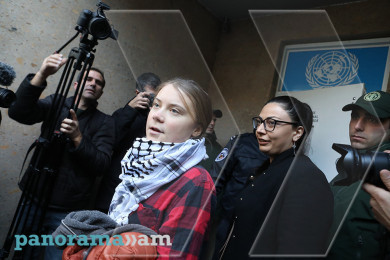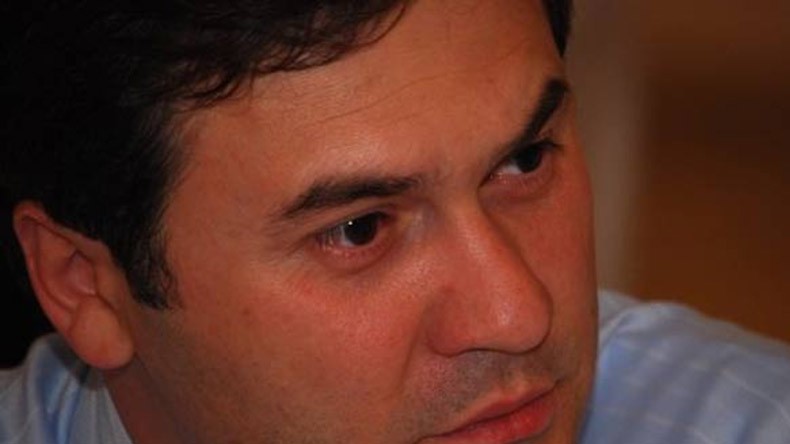
Mexican journalist puts Azerbaijani ambassador in his place for complaining of calling Heydar Aliyev ‘dictator’
Fausto Pretelin Muñoz de Cote, a Mexican journalist, gave a sharp response to Ilgar Mukhtarov, the Azerbaijani Ambassador to Mexico, who sent a letter to the editorial board of the newspaper 24 Horas complaining of an article , where the journalist refers to Azerbaijan’s former president Heydar Aliyev as a ‘dictator’ and a ‘genocidaire’ from Azerbaijan.
In the article in question, the journalist mentioned the monument to Heydar Aliyev placed in Mexico City. “When Marcelo Ebrard’s office [former mayor of Mexico City] decided to receive 10 million dollars in exchange for erecting the dictator Heydar Aliyev’s statue on the corner of the Paseo de la Reforma and Ghandi, the public reaction followed, though late. (Unfortunately, the public opinion in Mexico is not devoid of the ethnocentric features characterising it, because of which there is no interest in getting to know the contemporary political history of the world) The statue of the genocidaire from Azerbaijan was taken away and is now kept in a cellar in the district Azcapotzalco,” the journalist wrote stating that the barter was a mistake from the political point of view.
In a response letter, Mukhtarov the ambassador defended Heydar Aliyev and presented Azerbaijan’s official view on Karabakh conflict, assuming that the journalist was a victim of the false information of ‘various foreign agents.’
For his part, De Cote, the ‘victim of the false information,’ published his answer to the statement. He noted that the problem of the official history is that events, which could tarnish the image of the head of state, are left out of attention. One of such presidents is, according to the journalist, Ilham Aliyev, the current president of Azerbaijan and Heydar Aliyev’s son.
As an example, he presents the case of Akram Aylisli, an Azerbaijani writer who was punished by Ilham Aliyev for his novella Stone Dreams. In the novella, Aylisli writes about the Armenians’ massacres in Baku in 1990 supported by Heydar Aliyev to defame Mikhail Gorbachev as they were in bad terms.
“Azerbaijan has had two presidents since 24 June 1993 up to now – Heydar Aliyev and Ilham Aliyev, father and son, respectively. The repressions and human rights violations will never be admitted by the regimes committing them,” De Cote highlights.
In August 2012, a monument to Heydar Aliyev, the former president of Azerbaijan, was installed in one of the central parks in Mexico City causing bewilderment among the residents. Azerbaijan spent about $ 5 million to reconstruct two parks in Mexico City, after which it was allowed to install a monument there. Several protests were held in the capital of Mexico with the participants claiming they did not want to see the statue of a dictator, who had ruled thousands of miles away from their country, next to the monuments of their heroes.
As a result, a special commission recommended that the authorities of Mexico removed Heydar Aliyev’s statue, noting that the government had made a mistake by taking money and allowing the foreign government to decide which political and historical figures should be honoured publically in the Mexican capital. In mid-January, the Foreign Ministry of Mexico gave the government of Mexico City an absolute freedom to make a decision over the controversial statue. For his part, the Azerbaijani Ambassador to Mexico, Ilgar Mukhtarov, said the Embassy had decided to appeal to international organisations for the solution of the problem and even threatened with a break of the relations between the two countries. However, the Legislative Assembly of Mexico City called on the government of the city to take away the statue. In late January, the monument was removed and taken to a warehouse.
In September 2012, Heydar Aliyev’s bust statue, placed in Canada a year before, was removed, as the authorities of Niagara-on-the-Lake city considered it to be a monument to dictatorship.
Related news
Newsfeed
Videos






